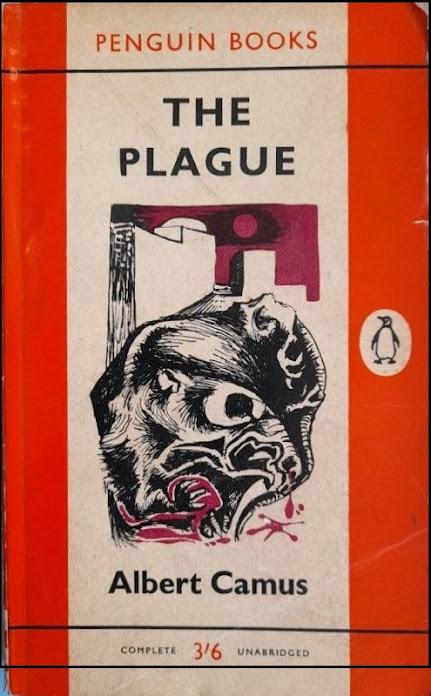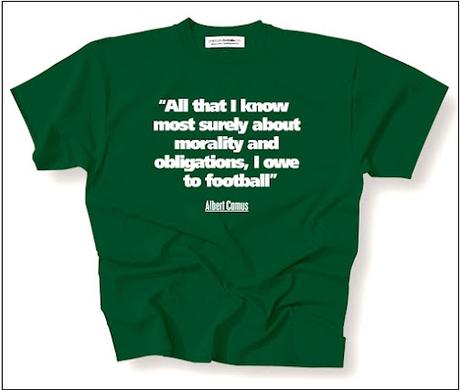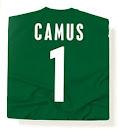 Before I come to the book let’s have a quick look at the background to the author. Camus was born to a French family in Algeria, which was then a colony of France. He was raised in poverty, and suffered from tuberculosis while at the University of Algiers. He joined the Communist Party for several years, then wrote for an anti-colonialist Algerian newspaper, joined an anarchist group, and then wrote and fought for the French Resistance against the Nazi occupiers in WWII. He was married to Simone Hié and later Francine Faure, and had two children. He consistently supported human rights, and vigorously opposed war and capital punishment. He won the Nobel Prize in Literature in 1957. He was killed in a car accident at the age of 46.The following is the best synopsis of the book I could find and was written by Scott Anderson in 2017: 'The Plague ' is a novel by Albert Camus, published in 1947, that tells the story of a plague sweeping the French Algerian city of Oran. It asks a number of questions relating to the nature of destiny, and the human condition. The characters in the book, ranging from doctors to vacationers to fugitives, all help to show the effects the plague has on a populace.The novel is believed to be based on the cholera epidemic that killed a large percentage of Oran's population in 1849, following French colonization, but the novel is placed in the 1940s. 'The Plague ' is considered an existentialist classic, despite Camus' objection to the label.
Before I come to the book let’s have a quick look at the background to the author. Camus was born to a French family in Algeria, which was then a colony of France. He was raised in poverty, and suffered from tuberculosis while at the University of Algiers. He joined the Communist Party for several years, then wrote for an anti-colonialist Algerian newspaper, joined an anarchist group, and then wrote and fought for the French Resistance against the Nazi occupiers in WWII. He was married to Simone Hié and later Francine Faure, and had two children. He consistently supported human rights, and vigorously opposed war and capital punishment. He won the Nobel Prize in Literature in 1957. He was killed in a car accident at the age of 46.The following is the best synopsis of the book I could find and was written by Scott Anderson in 2017: 'The Plague ' is a novel by Albert Camus, published in 1947, that tells the story of a plague sweeping the French Algerian city of Oran. It asks a number of questions relating to the nature of destiny, and the human condition. The characters in the book, ranging from doctors to vacationers to fugitives, all help to show the effects the plague has on a populace.The novel is believed to be based on the cholera epidemic that killed a large percentage of Oran's population in 1849, following French colonization, but the novel is placed in the 1940s. 'The Plague ' is considered an existentialist classic, despite Camus' objection to the label. Camus included a dim-witted character misreading Kafka’s 'The Trial ' as a mystery novel, as an oblique homage. The novel has been read as a metaphorical treatment of the French resistance to Nazi occupation during World War II. Additionally, he further illustrates the human reaction towards the absurd. 'The Plague ' represents how the world deals with the philosophical notion of the absurd, a theory that Camus himself helped to define.The novel became a bestseller during Covid to the point that its British publisher Penguin Classics reported struggling to keep up with demand. Camus' daughter Catherine said that the message of the novel had newfound relevance in that "we are not responsible for coronavirus but we can be responsible in the way we respond.”Here are a few excerpts to give a flavor of his writing.Part One Chapter 1: ‘In any case the narrator (whose name will be made known in due course) would have little claim to competence for a task like this, had chance not put him in the way of gathering much information....but perhaps the time has come to drop preliminaries and cautionary remarks, and to launch into the narrative proper. The account of the first days needs giving in some detail.’Chapter 2: ‘When leaving his surgery on the morning of 16 April, Dr Bernard Rieux felt something soft under his foot. It was a dead rat lying in the middle of the landing.’Part Two Chapter 4 ‘What I want doctor is this. On the day when the manuscript reaches the publisher, I want him to stand up and say to his staff “Gentlemen, hats off.” Rieux was dumbfounded...though he knew little of the literary world, Rieux had a suspicion that things didn’t happen it quite so picturesquely – that, for instance, publishers do not keep their hats on in their offices.’Chapter 8: ‘The evil that is in world always comes of ignorance, and good intentions may do as much harm as malevolence, if they lack understanding. On the whole men are more good than bad; that, however, isn’t the real point. But they are more or less ignorant, and it is this that we call vice or virtue; the most incorrigible vice being that of ignorance which fancies it knows everything and therefore claims for itself the right to kill.’I hope the above shows the mixtures of tone in his writing. Reporting, philosophy and humor.The other reason that I wanted to mention Camus is for something which he said in 1957:
Camus included a dim-witted character misreading Kafka’s 'The Trial ' as a mystery novel, as an oblique homage. The novel has been read as a metaphorical treatment of the French resistance to Nazi occupation during World War II. Additionally, he further illustrates the human reaction towards the absurd. 'The Plague ' represents how the world deals with the philosophical notion of the absurd, a theory that Camus himself helped to define.The novel became a bestseller during Covid to the point that its British publisher Penguin Classics reported struggling to keep up with demand. Camus' daughter Catherine said that the message of the novel had newfound relevance in that "we are not responsible for coronavirus but we can be responsible in the way we respond.”Here are a few excerpts to give a flavor of his writing.Part One Chapter 1: ‘In any case the narrator (whose name will be made known in due course) would have little claim to competence for a task like this, had chance not put him in the way of gathering much information....but perhaps the time has come to drop preliminaries and cautionary remarks, and to launch into the narrative proper. The account of the first days needs giving in some detail.’Chapter 2: ‘When leaving his surgery on the morning of 16 April, Dr Bernard Rieux felt something soft under his foot. It was a dead rat lying in the middle of the landing.’Part Two Chapter 4 ‘What I want doctor is this. On the day when the manuscript reaches the publisher, I want him to stand up and say to his staff “Gentlemen, hats off.” Rieux was dumbfounded...though he knew little of the literary world, Rieux had a suspicion that things didn’t happen it quite so picturesquely – that, for instance, publishers do not keep their hats on in their offices.’Chapter 8: ‘The evil that is in world always comes of ignorance, and good intentions may do as much harm as malevolence, if they lack understanding. On the whole men are more good than bad; that, however, isn’t the real point. But they are more or less ignorant, and it is this that we call vice or virtue; the most incorrigible vice being that of ignorance which fancies it knows everything and therefore claims for itself the right to kill.’I hope the above shows the mixtures of tone in his writing. Reporting, philosophy and humor.The other reason that I wanted to mention Camus is for something which he said in 1957: His actual words were: “After many years in which the world has afforded me many experiences, what I know most surely in the long run about morality and obligations, I owe to football.”
His actual words were: “After many years in which the world has afforded me many experiences, what I know most surely in the long run about morality and obligations, I owe to football.”
Thanks for reading, Terry Q Email ThisBlogThis!Share to TwitterShare to Facebook
